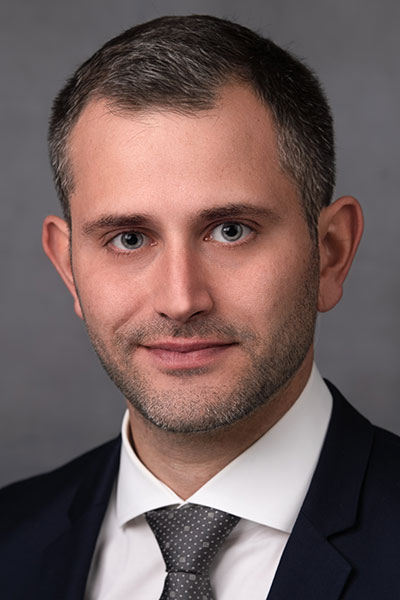Antibody-drug conjugates (ADCs) are among the most successful and most rapidly expanding therapeutic areas in breast cancer and across oncology. With first-, second-, and third-generation ADCs in global use, at least two additional ADCs appear poised for approval in 2025 and over 200 other ADCs are currently in clinical trials.
The 2024 San Antonio Breast Cancer Symposium® will explore this timely topic during the People’s Choice session, Future Directions in Antibody-Drug Conjugates, on Wednesday, December 11, from 3:30 to 5:15 p.m. CT in Hemisfair Ballroom 1-2 of the Henry B. Gonzalez Convention Center.

“We saw some not-very-encouraging data from the first ADC trials in the 1980s,” recalled session moderator Paolo Tarantino, MD, Research Fellow in Medicine at the Dana-Farber Cancer Institute and Harvard Medical School. “The first ADC was approved in 2000 for acute myeloid leukemia and still had issues with toxicity. It took another 10 years until the second generation — T-DM1 (trastuzumab emtansine) — showed impressive activity, but only in about 15 percent of our patients, namely those with HER2-positive breast cancer. The third generation — T-DXd (trastuzumab deruxtecan) and sacituzumab govitecan — however, showed significant benefit across most disease subtypes, and both drugs are being tested in the early-stage setting to prevent recurrence in high-risk breast cancer.”
Long-time ADC researcher and developer John Lambert, PhD, will discuss the history of ADCs, their complex mechanisms of action, and the current knowledge on their mechanisms of resistance. ADCs can act in multiple ways, not all of which are fully elucidated, Dr. Tarantino noted.
Giuseppe Curigliano, MD, PhD, Director of New Drugs and Early Drug Development for Innovative Therapies at the European Institute of Oncology in Milan, Italy, will focus on the role of ADCs in treating breast cancer and key challenges that are emerging as clinical experience with ADCs grows.
Ingrid Mayer, MD, MSCI, Global Clinical Strategy Head for Breast and Gynaecological Cancers at AstraZeneca, will discuss the evolving art of developing ADCs from her dual perspectives as a veteran academic and industry pioneer in breast cancer medical oncology.
Dr. Tarantino will outline the latest efforts to boost the precision of ADCs using both novel biomarkers and next-generation molecules. Current research suggests that future generations of ADCs are likely to deliver immunoactive molecules, radioactive molecules, targeted agents, and protein degraders as well as novel chemotherapeutics. He explained that improvements are also expected from the calibration of linker stability and antibody structure, moving beyond single specificity towards bispecific and trispecific antibodies, masked antibodies, and innovative vehicles beyond antibodies. Lastly, new biomarkers are being studied to improve ADC targeting and patient selection.
“Our goal is to deliver precision oncology, and with ADCs we’re not yet there” Dr. Tarantino said. “To do so we need better biomarkers. We have very effective drugs, but we can make them even more effective and safer if we use them in the right patients with the right dose at the right time. This is what I hope in the future we can achieve with improved diagnostics and a rapidly expanding deck of available ADCs.”
Access the 2024 SABCS® virtual platform
Watch any sessions you’ve missed and stay connected with fellow attendees in the online platform of the 2024 San Antonio Breast Cancer Symposium®. Recordings of sessions will be available on demand for registered 2024 SABCS® participants until March 31, 2025.

